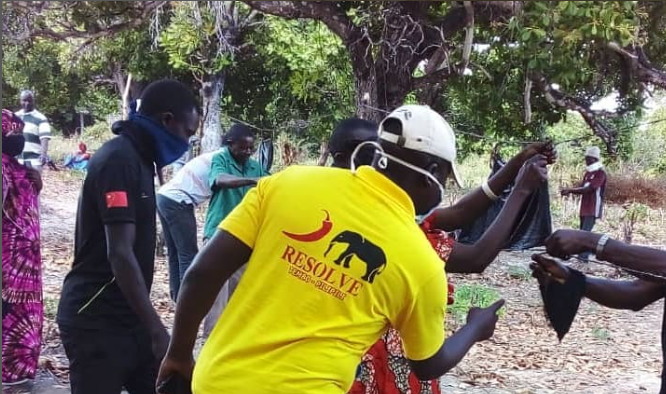About
The Tembo-Pilipili project (Swahili translation of Elephant-Chilli) aims to ensure that farmers living in close proximity to protected areas in Tanzania sustainably mitigate human-elephant conflict by implementing low-cost humane strategies and using community cooperatives to fund mitigation measures and create economic opportunities.
The project fosters the culture of coexistence by employing mitigation methods proven to keep elephants out of crop fields and reduce retaliation. In the past year, the chili fences continue to demonstrate effectiveness at preventing crop losses across all of our six project sites.
Our Story
In 2021, we introduced the Tembo Pilipili project in villages around Selous Game Reserve in Liwale district. Selous has high incidence of elephant crop raiding as elephants that take refuge in community forests during the day often invade crop fields at night. Tembo Pilipili continued to build capacity at our existing six sites in Mikumi, Tarangire, Bariadi/Serengeti, Ruaha, Lake Manyara, and Ngorongoro.

What we Actually do
Elephants have sensitive sense of smell, and therefore are repelled by the smell of chili. Tembo Pilipili Program promotes the use of chili-based methods because the associated costs are low and materials can be found locally. Farmers can grow chili to use it in making chili fences and chili briquettes/bricks, hence reduce cost for materials for HEC mitigation. Additionally, chili plants are not liked by elephants and most other animals, so they are not at risk of crop raiding. Surplus chili can be sold to chili sauce industry.